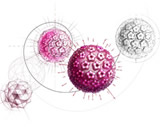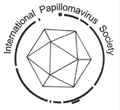Human papillomavirus and infertilty in women
Will having HPV affect my chances of getting pregnant?
The presence of human papillomavirus (HPV) by itself should not affect your ability to get pregnant. But in some cases, having HPV can increase your risk of developing precancerous or cancerous cells in your cervix, which could affect both your fertility and your ability to carry a baby to term.
Many of the HPV strains cause warts in the vaginal area and cervix. Often these warts are too small to see, and they're generally harmless. But a few strains of the virus are more worrisome because they can actually damage the cells of the cervix and turn them cancerous.Precancerous changes in the cervix can be mild to severe. In general, mild changes (called low-grade dysplasia) may not necessarily require treatment — just close follow-up care from your gynecologist.
If you do need treatment to remove precancerous cells before they progress to the cancerous stage, your doctor will probably use one of three techniques: removing a portion of the cervix (a cone biopsy); freezing and destroying abnormal tissue (cryosurgery), or removing cells via an electrically charged wire loop, called LEEP .
These procedures may make it more difficult for you to get pregnant or to carry a baby to term. Cervical cell removal can sometimes affect the production of cervical mucus. Healthy, normal mucus helps sperm swim up into the reproductive tract. Without it, sperm can have a hard time reaching the egg.
Depending on how much tissue is removed, the treatment may also weaken the cervix, leading to a condition known as incompetent cervix, also called cervical insufficiency. This can make you more likely to miscarry because your cervix may open during pregnancy. Minimizing the amount of tissue removed will reduce any effect on a future pregnancy, but it's vitally important for your doctor to take out all of the abnormal cells.
If precancerous cells remain untreated and develop into cervical cancer, there's a chance you'll need a hysterectomy (removal of the uterus), which would rule out any future pregnancies. Fortunately, cervical cancer is very treatable when caught early.
It's important to remember that you can pass the HPV virus to your partner during sexual intercourse or even through close sexual contact with the affected area. If you have active warts during your pregnancy, there's also a very slim chance (about 1 percent) that your baby will come into contact with the virus while passing through the birth canal and develop warts on the larynx - vocal cords.
Unfortunately, there's no cure for HPV, but your healthcare provider can prescribe medication to treat the warts. And you can prevent the infection from progressing to cervical cancer by having yearly Pap smears and getting any precancerous cells treated quickly.
HPV treatment, mitera hpv clinic istanbul turkey..






